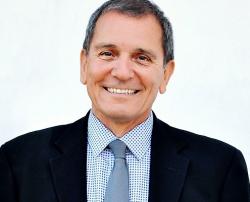Mental Toughness Expert Jim Madrid on Trophy Kids
Who really benefits from a participation trophy? Are we really helping our youth soccer players triumph?
For as little as $4.00 you can buy a shining gold participation trophy, but what is the real cost?
Jim Madrid, the founder, and CEO of Advance Sports Technology, Inc. (AST) explains the true value of a trophy and the cost of awarding trophies for just showing up.

Madrid has worked with many companies including Mercedes Benz, Lexus, Boys & Girls Club of America, Nordstrom, Caterpillar, Paramount Studios, Boeing, Oakley, Red Robin Restaurants, and Seattle Sounders FC. Madrid focuses on the power of positive leadership development, and player and employee engagement to maximize the performance of the team or company. Madrid is well known in the soccer world for his approach on “Mental Toughness – Achieving Athletic and Academic Success in a Competitive World”.
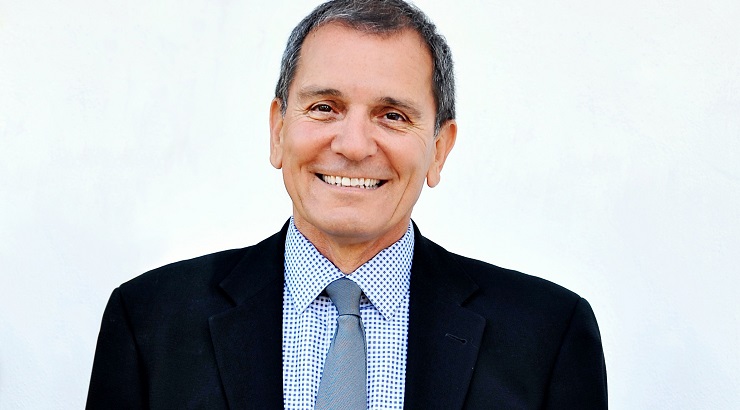 A professional soccer player came to me once and asked me “When am I going to hit the wall?” I was dumbfounded, but after I thought about it, I knew immediately what was going on in his head. Doubt. Doubt brings on hesitation, hesitation brings on failure.
A professional soccer player came to me once and asked me “When am I going to hit the wall?” I was dumbfounded, but after I thought about it, I knew immediately what was going on in his head. Doubt. Doubt brings on hesitation, hesitation brings on failure.
Doubt+Hesitation = Failure.
You see, what happens to us all is that we start to question ourselves, not just in our ability, but our belief of what we are worthy of. Therein lies the root of what is causing lack of performance. Well, at least in most cases that I have worked with over the last 30 years.
One of my mentors, Dr. Nathaniel Branden, was, in my opinion, and many others, the father of Self-Esteem. After reading a copy of his signature book, The Six Pillars of Self-Esteem, it occurred to me that one’s self-esteem is where our thoughts of who we are, what we are, what is possible for us, how we feel about ourselves, what is right and just for us, controls everything we do in life. You see Dr. Branden’s definition of self-esteem is the confidence that we are competent to deal with the basic challenges of life – and also the feeling that we are worthy of happiness.
Having self-esteem entails trust in one’s own mind.
It also means that we have confidence in our own value-in our right to be treated with respect and benevolence, and moreover, in our right to personal happiness and joy.
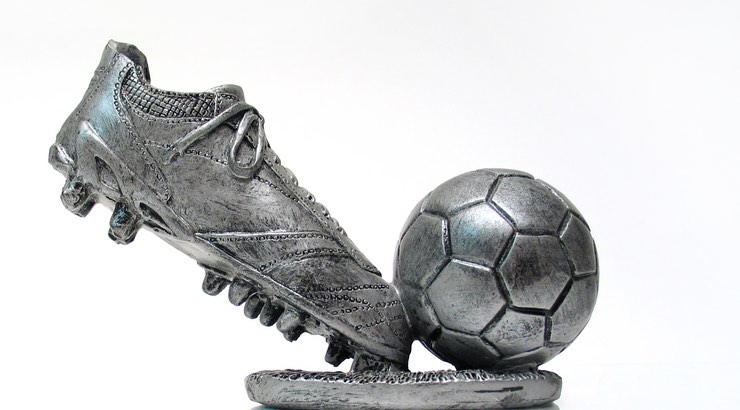 Back to the soccer player, I asked him, “Why do you ask me this question?”
Back to the soccer player, I asked him, “Why do you ask me this question?”
His response was, “Well as a rookie this season, I have started every match, I am being recognized everywhere I go in my hometown, and I have seen other athletes at my level breakdown in their performance. I don’t want that to happen to me.”
This player was having so much success all at once, great player, great human being, gave back to the community in which he grew up, and a great teammate. He was having doubts about his success and questioning whether he was worthy of it. You see he was dealing with his self-esteem.
Yet, understanding how this young man was raised had a great deal of insight for me to see how he would first respond to my coaching and second how we would deal with his success in the future. He came from a family that gave him great values as a young child, the belief that anything is possible. He had a strong support platform as a young boy and that served him well when he faced the challenges of self-doubt and fear. Based on his upbringing, I was certain we could quickly work through this issue, so he could continue to grow in his success.
A Soccer Parent’s Role In Children’s Self-Esteem
The journey toward a healthy sense of self is fraught with many perils, particularly during the developmental stage of our lives. Because of this, the role of parents in helping a child attain healthy self-esteem is critically important. No parent can “give” their child self-esteem, but they can “raise” them in a manner that removes many of the blockades toward healthy self-esteem.
As parents, this should be the primary task. There is practical importance in developing self-esteem in your children when they are young.
As we grow and develop, we continually face challenges of one kind or another.
A child or adult who believes in his/her own personal resources is far better situated to live life successfully than a child who is inhibited or paralyzed by self-doubt and self-distrust.
If we are to consider how self-esteem is best nurtured in young people, we must first be clear on what we mean by “self-esteem.” So let’s begin with Dr. Branden’s definition:
Self-esteem is the disposition to experience oneself as being competent to cope with the basic challenges of life, and as being worthy of happiness.
Thus, it consists of two components: (1) self-efficacy – confidence in one’s ability to think, learn, choose, and make appropriate decisions; and (2) self-respect – confidence that love, friendship, achievement, success – in a word, happiness – are natural and appropriate (Branden, 1994).
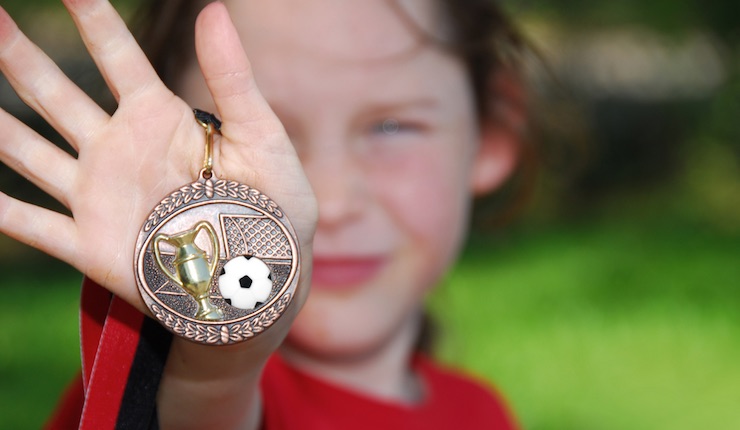 Since the beginning of the self-esteem movement in the late 1970’s, there has been a surge in “participation trophies” in sports, instead of awards for performance. Unfortunately, this was due to a great misunderstanding in Dr. Branden’s work in the self-esteem movement.
Since the beginning of the self-esteem movement in the late 1970’s, there has been a surge in “participation trophies” in sports, instead of awards for performance. Unfortunately, this was due to a great misunderstanding in Dr. Branden’s work in the self-esteem movement.
Dr. Branden has written extensively on this misconception and has said, “The notion seems to be that any positive feeling about the self, however, arrived at and regardless of its grounds, equals “self-esteem.”
Nothing could be further from the truth.
When one child/player is given a trophy at the end of a season and is known to have performed at a high level, one of the best on and for the team, and then another player is given the same trophy for just participating and low performance, the effect on both is a contradiction in terms.

The one that performs extremely well shows up for every practice, and has a great work ethic may ask themselves,
“Do I really need to work hard, when my teammate, who showed up for only half of the practices and never worked very hard, also received the same trophy that I did? This is not fair!”
Unfortunately, the value instilled in the other player, who didn’t work as hard and showed up to half of the practices, is one of entitlement. He or she learns that effort, perseverance, sacrifice, belief in one’s self, etc. are not important. He or she may think, “Rewards will be given to me, regardless of my effort or performance.”
“Thoughts have accumulated all these years to build our beliefs, we then act and behave in accordance with the truth as we perceive or believe ourselves to be.”

If every child receives a trophy or a medal, it will help them build their self-esteem by protecting them from a perception of failure if they don’t receive a trophy… right?
Unfortunately, this also is a myth generated by a misunderstanding of self-esteem.
Many parents believe that protecting children from failure will ensure their success through childhood to adulthood. Nothing could be further from the truth. The child that is given the opportunity to fail is the child who is given the opportunity to learn and, ultimately, succeed.
Parents, who focus on the efforts of the child, rather than the outcome or results of their efforts are giving the child freedom to try and if not successful the first time, the desire to try again… and again, and again, if necessary!

The most powerful questions a parent can ask their child who has failed are, “Did you give it your best effort? and What could you do differently next time?”
The person who has never persisted through failure to achieve success has little or no confidence in their own ability.
This all too often leads to allowing someone else to run their life, and it is rare that anything positive comes from that.
To raise children with strong self-esteem is not to give them trophies for merely “showing up” as this can be detrimental to their self-esteem and eventually their self-confidence and self-efficacy (one’s appraisal of one’s self of what they can cause, bring about or make happen.)
If a person felt inadequate to face the normal challenges of life, if he or she lacked fundamental self-trust or confidence in his or her mind, we would recognize the presence of a self-esteem deficiency, no matter what other assets the person possessed.
We cannot “give” a child self-esteem.
But we can support the practices that will lead a child to self-esteem, and abstain from the actions that tend to undermine a child’s self-esteem.
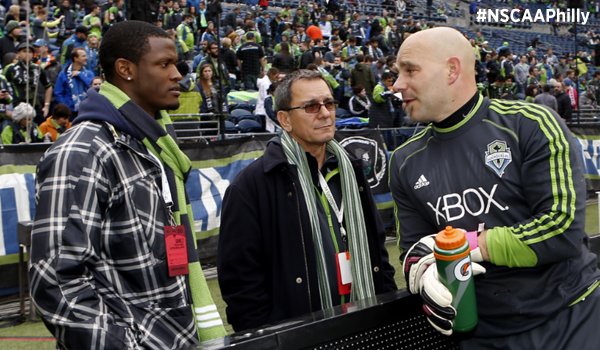
Back to the professional soccer player, who was concerned with his sudden-found success…after a few sessions, he was quickly back on track and has since become a member of the USMNT and is playing for a very successful club in Europe!
Next article will be on how to embrace setbacks as a life experience. When one does not make the team, a part in the play, get the job, promotion, raise. It all connects to how we deal with life’s everyday challenges and what about the big challenges.
Jim Madrid is a champion of and catalyst for change in unleashing human potential. For three decades he has been in the business of helping people and companies achieve breakthrough levels of success.
Originally published in November 2016

